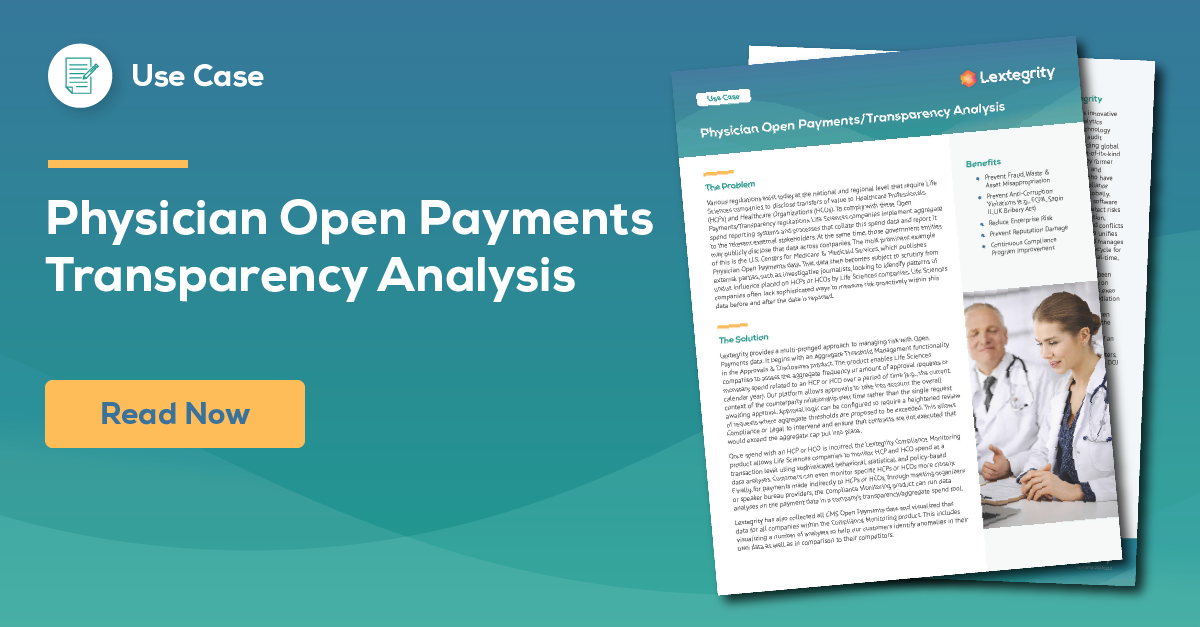Problem
Various regulations exist today at the national and regional level that require Life Sciences companies to disclose transfers of value to Healthcare Professionals (HCPs) and Healthcare Organizations (HCOs). To comply with these Open Payments/Transparency regulations, Life Sciences companies implement aggregate spend reporting systems and processes that collate this spend data and report it to the relevant external stakeholders. At the same time, those government entities may publicly disclose that data across companies. The most prominent example of this is the U.S. Centers for Medicare & Medicaid Services, which publishes Physician Open Payments data. That data then becomes subject to scrutiny from external parties, such as investigative journalists, looking to identify patterns of undue influence placed on HCPs or HCOs by Life Sciences companies. Life Sciences companies often lack sophisticated ways to measure risk proactively within this data before and after the data is reported.
Solution
Lextegrity provides a multi-pronged approach to managing risk with Open Payments data. It begins with an Aggregate Threshold Management functionality in the Approvals & Disclosures product. The product enables Life Sciences companies to assess the aggregate frequency or amount of approval requests or monetary spend related to an HCP or HCO over a period of time (e.g., the current calendar year). Our platform allows approvals to take into account the overall context of the counterparty relationship over time rather than the single request awaiting approval. Approval logic can be configured to require a heightened review of requests where aggregate thresholds are proposed to be exceeded. This allows Compliance or Legal to intervene and ensure that contracts are not executed that would exceed the aggregate cap put into place.
Once spend with an HCP or HCO is incurred, the Lextegrity Compliance Monitoring product allows Life Sciences companies to monitor HCP and HCO spend at a transaction level using sophisticated behavioral, statistical, and policy-based data analyses. Customers can even monitor specific HCPs or HCOs more closely. Finally, for payments made indirectly to HCPs or HCOs, through meeting organizers or speaker bureau providers, the Compliance Monitoring product can run data analyses on the payment data in a company’s transparency/aggregate spend tool.
Lextegrity has also collected all CMS Open Payments data and visualized that data for all companies within the Compliance Monitoring product. This includes visualizing a number of analyses to help our customers identify anomalies in their own data as well as in comparison to their competitors.
Results
Customers gain increased operational efficiency and much more sophisticated end-to-end risk management with Lextegrity’s Open Payment Analysis functionality. Life Sciences companies can proactively minimize the risk of inappropriate or excessive transfers of value to HCPs and HCOs pre-contract and then monitor those payments post-contract using highly sophisticated data analyses and visualizations to identify anomalies or areas of risk.









